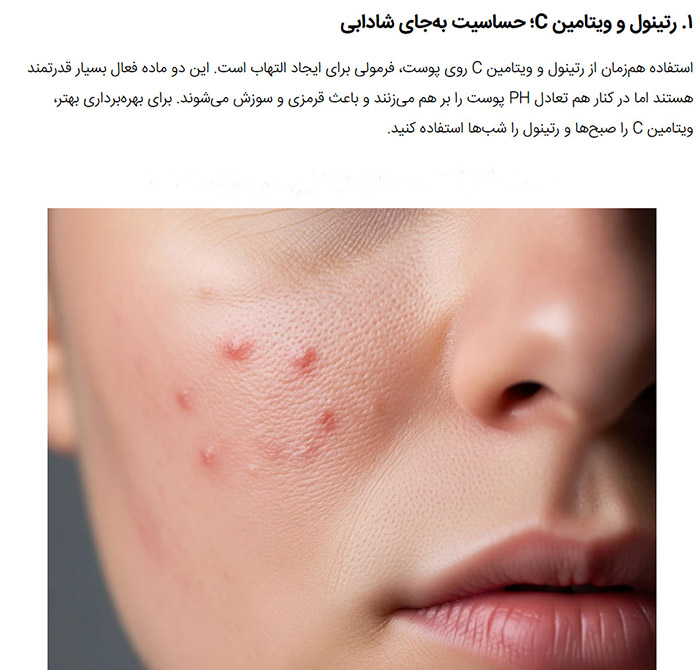Retinol and Vitamin C: Sensitivity Instead of Freshness
Retinol and vitamin C are two powerhouse ingredients in skincare, praised for their anti-aging and brightening benefits. However, using them together can cause more harm than good. While each ingredient offers significant advantages individually, combining them can disrupt your skin’s natural pH balance, leading to sensitivity, redness, and irritation.
Vitamin C, or ascorbic acid, is most effective in a low pH environment and is typically applied in the morning. It helps to protect the skin from free radicals and boosts collagen production. Retinol, on the other hand, is a vitamin A derivative that works best at a higher pH and is usually applied at night. It speeds up cell turnover, reduces fine lines, and improves skin texture.
When these ingredients are layered together, their opposing pH requirements can cause skin stress. This imbalance can weaken the skin barrier, leaving it more vulnerable to environmental damage and inflammation.
For optimal results without irritation, use vitamin C in your morning routine and retinol in the evening. This approach allows your skin to benefit from both ingredients’ strengths while minimizing sensitivity. Being mindful of how and when you use these actives is key to achieving healthy, glowing skin without compromising its integrity.

